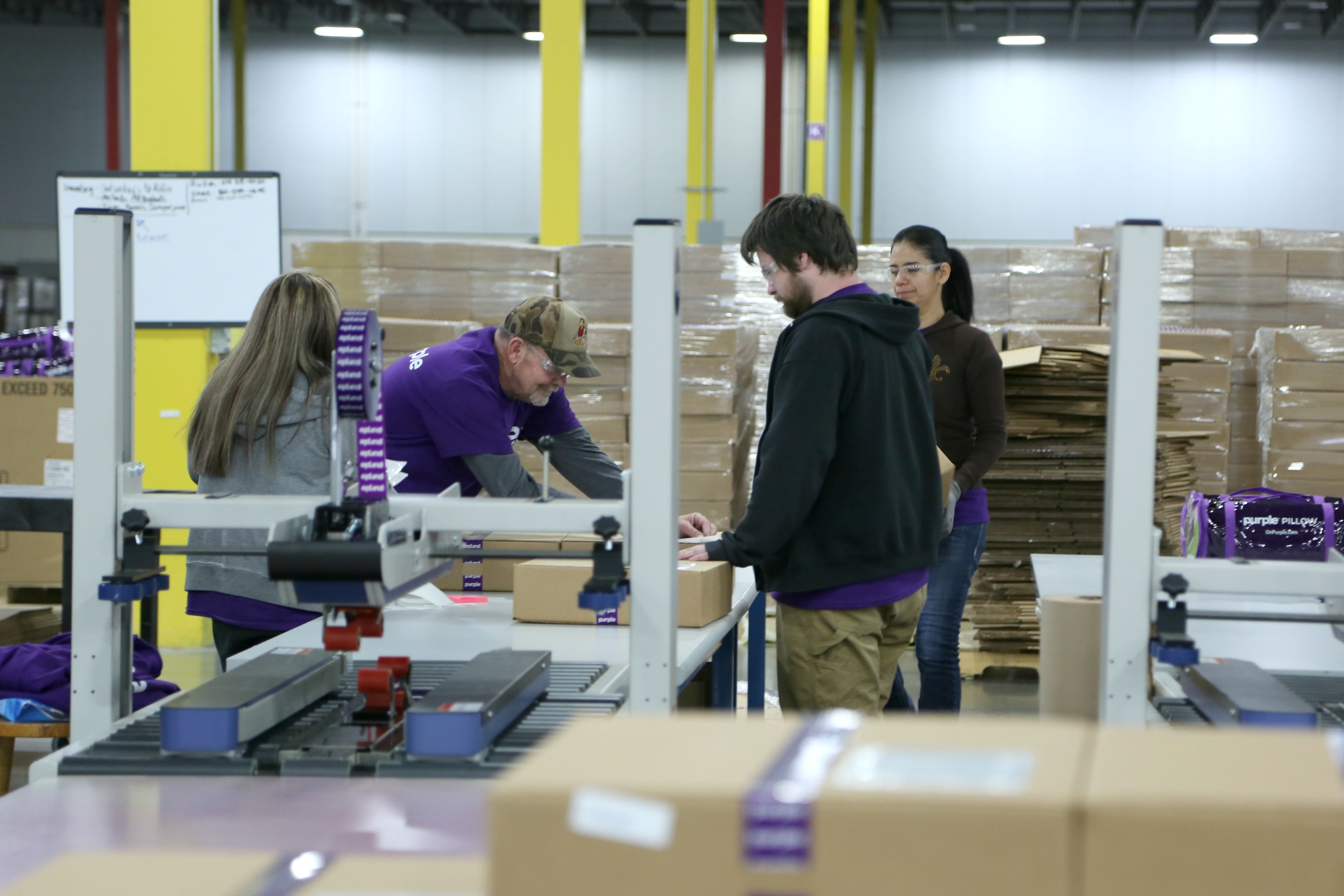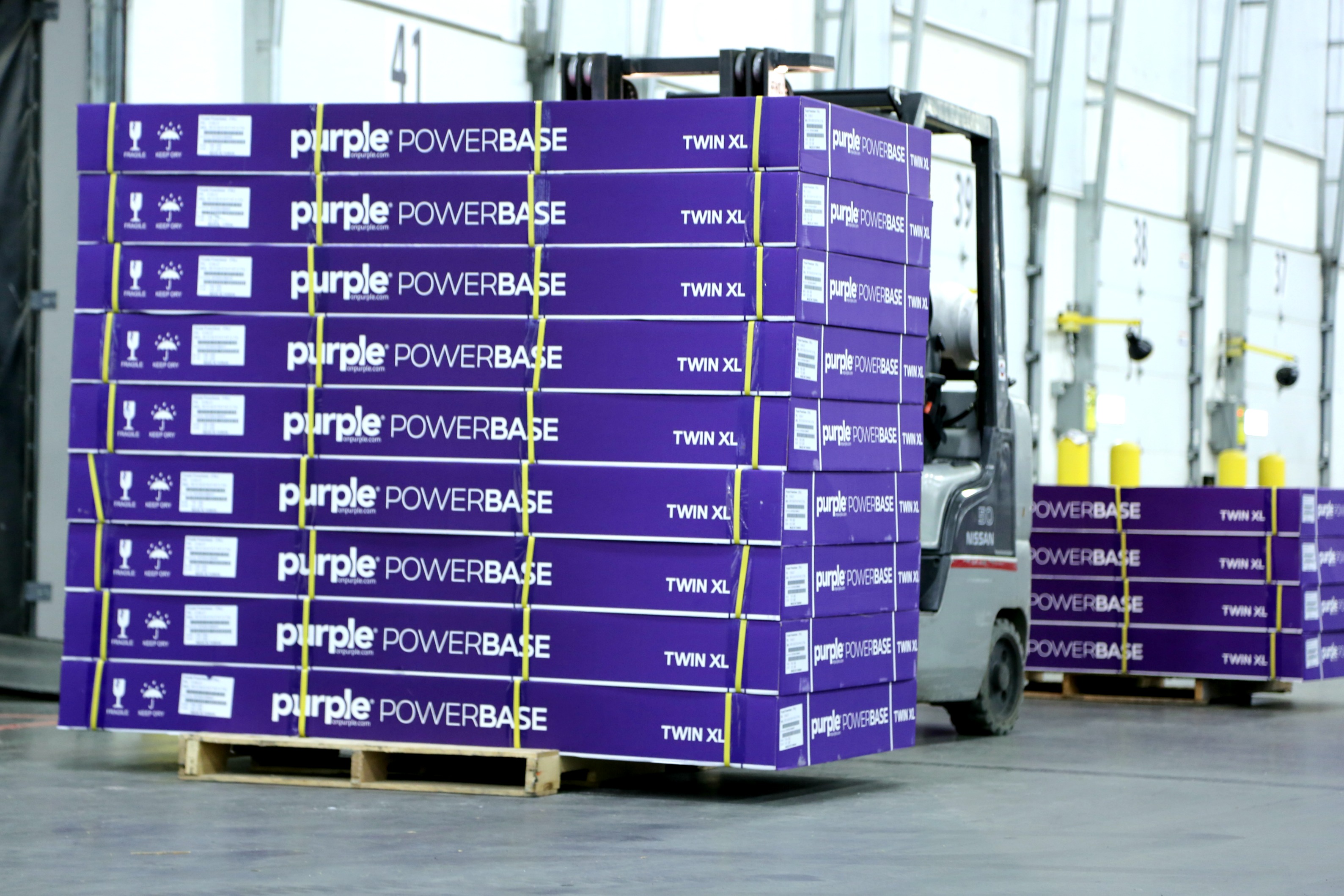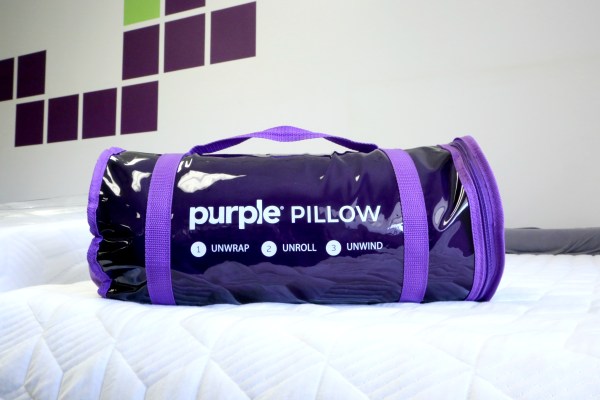You’ve likely never heard of this company if you live inside the Bay Area bubble, but Purple, a totally bootstrapped mattress startup, is using toxin-free, patented technology for a pressureless night’s sleep — and could become the first of the mattress unicorns.
Nearly a thousand miles away from Silicon Valley and just west of Utah’s Great Salt Lake, in practically the middle of nowhere, is the tranquil cow town of Grantsville, population 9,617. It is there, in a warehouse the size of a combined eight Walmarts, you’ll find Purple, a direct-to-consumer mattress startup, hard at work prepping hundreds of thousands of pillows, powerbases and, of course, mattresses, for shipment.
The company started a decade ago in the wheelchair business. It was making a patented cushioning technology to prevent bedsores for those sitting all day. But founders (and brothers) Tony and Terry Pearce noted a shift in the mattress space. It was headed online and a bunch of startups like Casper, Tuft and Needle, Leesa and others were starting to pop up. So the pair decided three years ago to capitalize on the trend by using the same technology used in the wheelchair cushioning to make their own bedding.
That proved to be a smart move, and the company has grown quite a bit because of it. In just the last year Purple went from a team of 30 to 600 people, built out the aforementioned 574,000-square-foot manufacturing facility in Grantsville and, from what I’ve been told, sales are through the roof.
Purple is currently working to fulfill orders for 27,000 of its newly launched pillows and, though the startup was hesitant to give out numbers, a source tells me it’s set to hit $150-$200 million in revenue this year. Compare that to its possibly biggest competitor, Casper, which hit $100 million in cumulative sales in 2016 and reportedly has been on track to hit $200 million by the end of this year.
Update: Casper says it has hit that $200 million sales mark last year, bringing its total revenue to date to $300 million.
But, unlike Casper, which has taken in $70 million in funding so far, Purple hasn’t tapped into venture capital yet. It also owns the manufacturing process from beginning to end. Utah land and labor are both cheap, and the mattress startup can make its products at a much lower cost than Bay Area competitors.
It’s a big job creator for the little town of Grantsville, too, where there aren’t a lot of opportunities for work. Purple will soon be the biggest employer there, with plans to hire another couple of thousand people, and is partnering with the local high schools and training facilities to provide locals the skills they’ll need to help out in the warehouse in the near future.

Thousands of Purple’s mattresses stacked up inside the new 574,000-square-foot warehouse.
Company headquarters are an hour’s drive to the south, in the town of Alpine, situated just beneath Utah’s Wasatch Front, a mountain range from Ogden to Provo that sidles up to what has been dubbed the “Silicon Slopes” due to the state’s vigorous tech growth over the last few years.
Several unicorns dot the area, including Pluralsight, Domo and Accel Capital’s largest investment to date, Qualtrics, which just this week was crowned with a whopping $2.5 billion valuation.
Purple’s CEO Sam Bernards believes his company is well on its way to becoming the next billion-dollar startup in the region, and, if those sales are any indication, he’s probably right. Though Purple has so far taken zero cash from investors, Bernards tells me he’s had some inbound inquiries from Silicon Valley and that it’s something he’d consider in the near future to help the company scale.

Workers rolling up mattresses at Purple’s new mattress factory in Grantsville, Utah.
The mattresses are priced closely to Casper’s. A king bed, for instance, costs $1,300. A Casper king sits just below that at $1,150. However, that’s at the high end for others in the space. Tuft and Needle, another mattress startup based in Phoenix, comes in at $750 for that size.
But Purple is in another league, argues Bernards. For one, it’s designed to prevent bedsores, so it’s a good bet for those who spend a lot of time under the covers. Purple uses a total of 16 patents to make its mattresses soft enough to hug your body, yet firm enough to hold you up through the night. And, should there be an apocalyptic event, you can eat them. The hyperelastic mattress material is made from a food-grade polymer — no latex or other toxic ingredients.
I tested the product myself on a recent visit to Utah. The best way I can describe it is laying on a super soft batch of Jello, but without the seismic wave activity. It compares in comfort to Casper (which I’ve also tried) and my Brooklyn Bedding mattress at home. Each pressure point of my body was cradled in this jelly-like webbed material underneath me, which allows longer hours of comfort and breathability, so you’re not likely to get sweaty under the covers, either.
Purple also gives a 100-day money-back guarantee for those who want to try it out themselves, and says each mattress should last about 10 years, or the average time most people start looking for a new mattress.

Purple’s powerbases, which allow customers to move their mattresses to the sitting or sleeping position.
But it’s not without plenty of competition. Casper is the online mattress startup that had the most brand recognition with people I asked in San Francisco, and, according to Inc., there are more than 600 mattress companies in the U.S., several with brick-and-mortar locations where you can try the mattress and chat with a salesperson.
However, Purple seems to be full steam ahead. It’ll have to speed up to fulfill those back orders, of course, but mix the current growth and interest, ownership of the manufacturing process, the cheaper labor market, unique branding and great sales with future plans to move into global sales, add in some VC funding to help it scale and Purple could be set to rocket past all the others.
Check out the video above for an inside look at what Purple is doing for the town of Grantsville and a chat with its CEO about the mattress business.
*This article is part of a larger series focusing on the Utah tech scene. We’re going to be sprinkling several of these articles and videos throughout the TechCrunch newsfeed for the next couple of weeks, so strap on your ski boots and stay tuned as we guide you through the “Silicon Slopes!”
